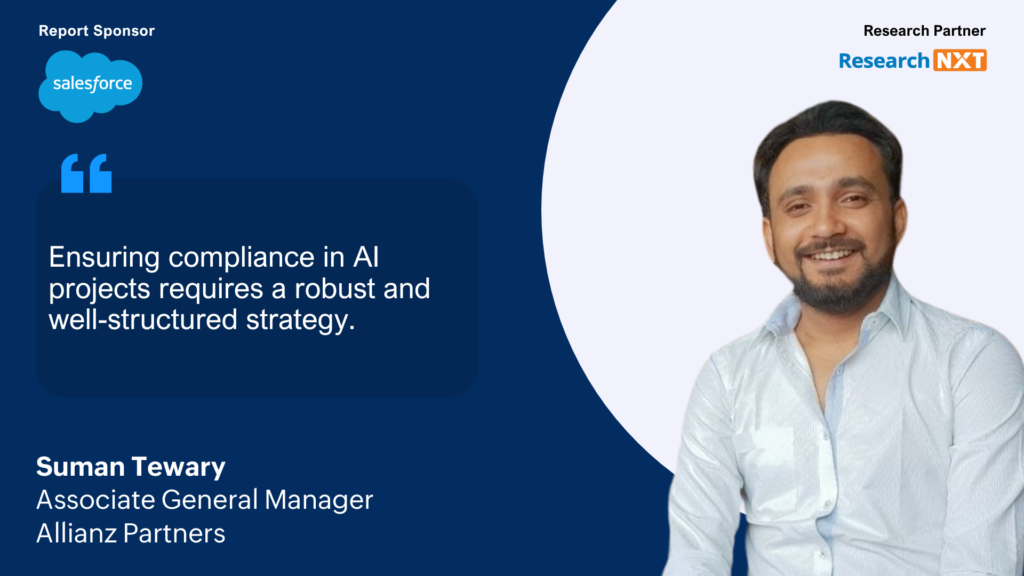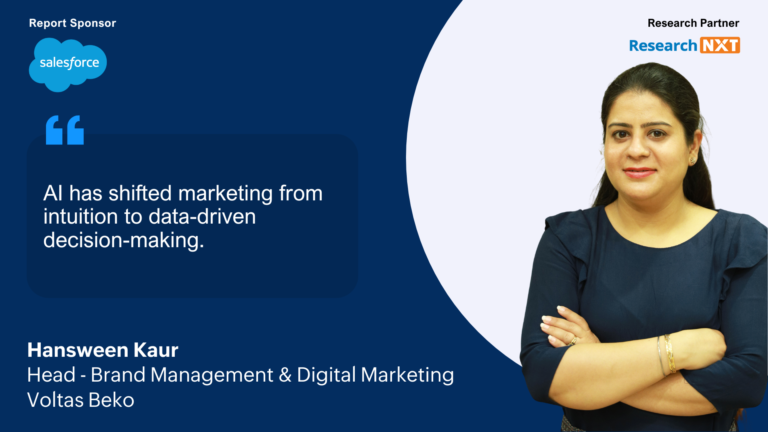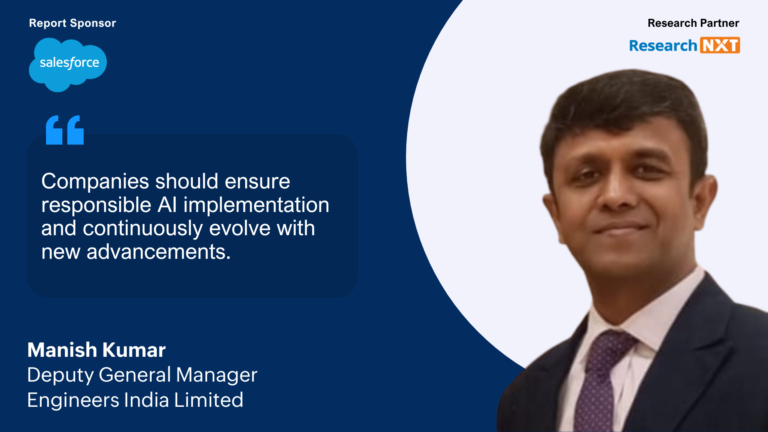
AI in Action: Transforming Insurance Sales and Distribution at Allianz Partners
From chatbots predicting your insurance needs to algorithms that process claims in seconds, artificial intelligence is revolutionising the insurance industry – and Suman Tewary has a front-row seat to this transformation. As Associate General Manager at Allianz Partners, Suman takes us behind the scenes of the insurance industry’s AI revolution. In this interview, he reveals how AI is not just changing the game, but fundamentally reshaping how insurance is sold and delivered. From hyper-personalised customer experiences to streamlining operations, Suman sheds light on the opportunities and challenges of this exciting new era.
Key Highlights from the Interview
- AI Adoption in Insurance: Allianz Partners has embraced AI technologies, such as chatbots, predictive analytics, and real-time pricing adjustments, to personalise offerings and optimise sales and distribution processes.
- Data Management and Privacy: Effective AI implementation requires robust data management practices, including consolidation, quality checks, and real-time updates, while addressing concerns around data privacy and regulatory compliance.
- Responsible AI Usage: Allianz Partners is committed to ethical AI practices, ensuring transparency, mitigating biases, and adhering to regulatory standards through audits, interpretability guardrails, and stakeholder trust-building measures.
- Future Trends in AI for Insurance: Emerging AI trends include hyper-personalisation, real-time data integration, and proactive risk models, which will revolutionise underwriting, claims processing, and fraud detection.
“Successful AI implementation requires high cross-departmental collaboration between marketing, IT, customer service, and other departments.”
Could you share a brief overview of your professional journey, which led you to your current position as Associate General Manager – Affinity & Distribution Sales at Allianz Partners?
Suman: I started my career as a product development manager for a start-up called Indian Health Organisation Pvt. Ltd. where I was entrusted with the responsibility of setting up the product development from the ground up. It included price strategy, product road map, product launch and campaign.
The second phase of this role included provider certification & contract management, certifying over 2000 Provider Networks across 38 cities in India. Certification involved assessment and evaluation of the providers’ quality per the company criteria. Discussion and negotiation with authorised body such as the Director/Owner of the Centre and bringing it on the panel. Played a key role in launching Integrated Wellness programs across corporates. Designed and launched various wellness products with over 100 tertiary care providers and caregivers. Negotiated and designed over 200 corporate-specific health packages. Held the record of most empanelments in the company, resulting in felicitation by the Global President Mr Sandeep Patel.
Later, I headed marketing for Aetna India and was responsible for developing and implementing the Go To Market strategy to strengthen the company’s presence & drive business growth in the potential segments. Responsibilities involve new product development, commercial activation and improving customer experience. Liasioning with internal departments for concentrated campaigns to drive revenue.
Started sales for the conglomerate CVS Aetna, USA. Identified, interacted, and tied up with small and large corporations that had been hugely involved in presales and business growth. Bringing in New Partnerships and Nurturing the existing ones Nationally. Developing digital & customised product propositions with the partners’ Business Model and existing services delivering topline.
My Next project was to experience the direct wellness industry. I headed the new initiative of affinity business with Redcliffe Labs. Experienced in Planning & implementing various activities as per the Marketing plans like Organizing General Health Camps, CMEs, Health Awareness Lectures & Workshops, Executive Health check-ups, pre-employment health Check-ups, Onsite Camps, etc. Corporate Relations: Empanelled Corporate, Including Private Companies, PSUs, and Institutions & TPAs. Maintaining a good relationship with corporate executives on the panel. Managing relationships with Franchisee labs & CCs for extending wellness services for locations. On-board various corporates, TPA / wellness, and Aggregators companies.
Currently working with Allianz Partners, and taking care of a new initiative concerning the launch of a Distribution business involving Healthcare (Affinity with existing insurance & RSA products). Identify, map and target new B-Partners and customer segments in accordance with the Allianz Customer Model. Identify senior and relevant stakeholders at prospect B-Partners, create engaging business conversations, generate prospect leads and qualify them for submitting proposals.
What are your primary responsibilities in this role, and how do you see AI influencing your role specifically and the function as a whole?
Suman: The primary responsibility of this individual at Allianz Partners as the Associate General Manager – Affinity & Distribution Sales involves driving sales and growth through affinity partnerships and distribution channels. Key aspects include:
- Developing and implementing strategies to expand distribution networks and strengthen affinity partnerships.
- Managing relationships with key stakeholders and clients to ensure consistent revenue growth.
- Overseeing end-to-end sales processes, including client acquisition, negotiations, and renewals.
- Achieving organisational P&L targets through strategic planning and execution.
- Collaborating across teams (sales, tech, marketing, and operations) to deliver comprehensive solutions and drive market penetration.
Read More
From your experience, how has Allianz Partners integrated AI into its operations and in sales and distribution?
Suman: Allianz Partners has strategically integrated Artificial Intelligence (AI) across its operations, including sales and distribution, to enhance efficiency, customer experience, and market competitiveness. Key implementations include AI-Powered Sales Platforms, Embedded Insurance Solutions, etc.
What specific applications of AI (Gen AI or otherwise) have been most impactful in enhancing operational efficiency and customer experience?
Suman: Allianz FusionSM, CE application, chatbots, etc.
What level of collaboration do you see between departments (e.g., marketing, IT, customer service) for successful AI implementation? And what do you think is needed?
Suman: Successful AI implementation requires high cross-departmental collaboration between marketing, IT, customer service, and other departments. Each team contributes unique expertise and plays a critical role in ensuring the technology is well-integrated, effective, and aligned with organisational goals.
What did you have to do to manage data for your AI initiatives?
Suman: Managing data for AI initiatives is a crucial and multifaceted task that requires careful planning, execution, and governance. Below are key steps typically involved in managing data for AI initiatives:
- Consolidate data from multiple sources into a unified framework to avoid silos.
- Extract, Transform, and Load (ETL) tools are used to process and transfer data to the AI system.
- Develop APIs to enable real-time or batch data transfers between systems.
What are your concerns regarding data quality and privacy at an industry level, and if you wish to highlight what you’re doing to manage this at your organisation?
Suman:
Concerns
- Incomplete or Inaccurate Data: Poor-quality data can compromise AI model accuracy, leading to flawed insights or decisions.
- Data Silos: Fragmented data across systems or departments can prevent holistic analysis and decision-making.
- Real-Time Data Challenges: Maintaining the accuracy and relevance of real-time data streams is a complex task.
- Data Breaches: Increasing sophistication of cyberattacks raises the risk of sensitive data being compromised.
- Unauthorised Access: Insufficient access controls may lead to unauthorised data usage.
Actions taken to manage this
- Data Audits: Regular audits to identify and rectify inconsistencies, inaccuracies, and missing data.
- Training Programs: Educating teams on data hygiene and proper data handling practices.
- Data Encryption: Encrypting sensitive data both in transit and at rest to minimise risk in case of breaches.
- Access Controls: Employing strict role-based access controls and two-factor authentication to restrict data access.
What strategies are in place to ensure compliance when you plan for AI projects?
Suman: Ensuring compliance in AI projects requires a robust and well-structured strategy that encompasses regulatory, ethical, and organisational standards.
How important is a unified view for sales and distribution, and what are the main challenges you face in integrating customer data across departments?
Suman: A unified view of customer data is crucial for sales and distribution because it enhances decision-making, improves customer experience, and drives business growth. Here’s why it is essential:
- Enhanced Customer Insights
- Streamlined Sales Processes
- Improved Customer Experience
- Increased revenue and Retention
How do you use AI to deliver better employee and customer experiences?
Suman: Analyse customer behaviour, preferences, and history to provide tailored product or service recommendations. Use AI to adjust real-time pricing based on demand, competition, and customer segmentation.
What role does AI play in tailoring insurance products to meet the unique needs of individual customers or specific customer segments?
Suman: AI plays a transformative role in tailoring insurance products to meet the unique needs of individual customers and specific segments. By leveraging data analytics, machine learning, and predictive modelling, insurers can deliver personalised, relevant, and value-driven products.
What metrics or KPIs do you use to measure the effectiveness of AI in your organisation?
Suman: The effectiveness of AI in an organisation is best measured using a combination of business, operational, customer, and technical metrics. Aligning these KPIs with strategic goals ensures that AI investments are tracked effectively, delivering measurable value while fostering trust and innovation.
What are some of the key challenges Allianz Partners has faced in adopting AI, particularly in sales and affinity programs?
Suman: Adopting Artificial Intelligence (AI) in sales and affinity programs presents several challenges for organisations like us. Key obstacles include:
- Data Integration and Quality
- Regulatory Compliance and Ethical Considerations
- Employee Training and Change Management
In your view, what are the biggest risks associated with AI adoption in the insurance industry?
Suman: While AI adoption can revolutionise the insurance industry, mitigating its associated risks requires a proactive approach, including ethical practices, regulatory alignment, and robust oversight. Balancing innovation with responsibility is key to sustainable growth and customer trust.
How does Allianz Partners ensure responsible AI usage, including mitigating biases, improving transparency, and adhering to ethical standards?
Suman: Allianz Partners is committed to the responsible use of Artificial Intelligence (AI), focusing on mitigating biases, enhancing transparency, and adhering to ethical standards.
What guardrails are you placing to prevent these known issues and mitigate associated risks?
Suman: By integrating regular bias audits and developing models with interpretability guardrails, organisations can effectively mitigate risks associated with AI adoption while fostering innovation, ensuring fairness, and maintaining trust with stakeholders. These measures help balance technological advancements with ethical and operational responsibility.
What emerging trends do you foresee in AI adoption in the insurance sector over the next 3-5 years?
Suman: In the next 3-5 years, AI adoption in the insurance sector will focus on personalisation, efficiency, and ethical practices. The integration of real-time data, advanced analytics, and proactive models will reshape the industry, benefiting both insurers and customers. However, insurers must navigate challenges like data privacy, bias mitigation, and regulatory compliance to maximise the potential of these emerging trends.
Are there specific areas in sales and distribution where you believe AI has the potential to create the most significant impact?
Suman: AI’s potential to revolutionise sales and distribution in the insurance industry lies in its ability to enhance personalisation, streamline operations, and optimise resources. By focusing on lead generation, channel performance, customer retention, and fraud detection, AI can drive efficiency and significantly improve outcomes for both insurers and customers.
We want to know your expectations from this report. What do you believe would be the most valuable data point or subject matter for you in this report?
Suman: The fact that AI adoption in the insurance sector will completely change the whole spectrum is a boon in itself for both insurers and customers. The initial challenges shall always remain, navigating challenges like data privacy, bias mitigation, and regulatory compliance to maximise the potential of these emerging trends.
However, it shall take a certain length of time to cement and work as the precursor in this emerging scenario and shall scrutinise extensive datasets to uncover patterns, bottlenecks, and inefficiencies in insurance processes like claim processing, underwriting, risk assessments, back office functions, and policy issuance. It shall certainly help streamline and optimise these processes, boosting efficiency and reducing processing times.
It will be a win-win situation for both insurer and customer, but it will negatively impact the employment ratio across the globe.






